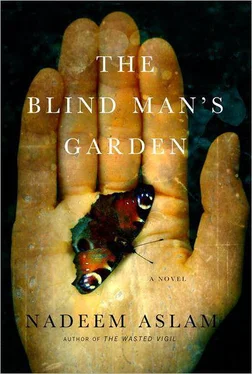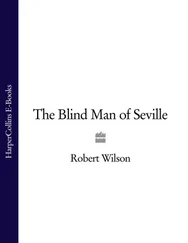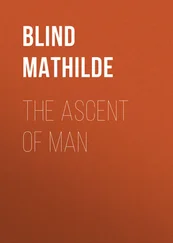‘I didn’t bring them.’
Mikal is aghast. ‘How did you think I would help you steal?’ He doesn’t believe the man is telling the truth. ‘What if I’d had to run?’
The thief lifts his gun and aims it at Mikal unsteadily with shivering hands. The pain is making his eyes murderous. ‘I don’t have them. And don’t think you can run away from me. Now go and get the seat belts.’
After applying the tourniquet they begin to walk, finding a path that leads them back up to the level from which they fell, the thief leaving a glistening trail. Moving through freezing air in wet clothes, the footsteps of all three soon become less sure but they continue, wordlessly, Mikal’s chain the only sound. Two years ago in Pakistan he had gone hunting at the same latitude as this, and had prevented frostbite by duct-taping his entire face, leaving just a half-inch slot for the eyes and another for the nose. Now he watches the father and his son as they weaken. He knows they’ll fail sooner than him, the father leaning on the son as they stagger along. He must summon the last bit of warmth inside him. Naheed. The word in which all meanings converge.
The father is the first to collapse among the grey rocks just as they are approaching a ridge. The son succumbs a moment later as though he had needed permission. From where he lies the man swipes at Mikal’s shirt in sudden desperation, to hold onto him, but the mountains have sucked out all his strength, the slopes and summits that stand around them like solidified silence — time made visible in a different way, ancient and on an elongated scale.
In a trance of liberty Mikal keeps walking towards the ridge. In another half hour the darkness will be complete. He looks over his shoulder and sees that the injured man, lying on the ground, is attempting to aim his gun at him, the barrel jerking as though he is trying to shoot a butterfly that won’t settle.
He goes over the ridge and stops in his tracks, seeing what lies on the other side. ‘What the hell?’ And only after a long moment does he take another step forward.
He is facing a graveyard of planes and helicopters, Russian MiGs and Hinds, all resting at odd angles with cockpits slung open and the glass smashed, the tyres ripped and rotted. There are several dozen of them, a swathe of hulks stretching all the way to another ridge half a mile away.
He moves towards a helicopter and looks inside. There is Russian graffiti scratched onto the tarnished walls. Names, sentences, and hearts with initials in them. The interior has been stripped of everything, from the seats to the instrument dials. Each aircraft is little more than a pod or shell, a coffin meant for a giant, and the metal of each must weigh thousands of kilograms. At some point each has had a growth of lichen on it, layer upon thick layer dried now to a crust. He continues to walk in an almost straight line through and between them, climbing in and out of the doors, speaking quietly to himself as he goes, to stop the mind from losing focus. ‘Mikal is free at last. Mikal keeps walking. Mikal hears the sound of his chains. Mikal cannot feel any of his fingers. Mikal is not going to die in this metal cemetery. Mikal has probably caused the death of a man. Mikal wants to see Naheed’s face. Mikal wants to live with her in the room in Heer. Mikal must find Jeo.’ After a while he stops and turns around.
He arrives back at the first helicopter gunship and sees that the father and son have attempted to follow him — they’d made it over the ridge but have collapsed once again on this side, one prone, the other supine. He approaches and astonishingly the father raises his wildly trembling arm with the gun towards him once again. The son’s eyes remain closed but even in the state of unconsciousness his body is shaking. Mikal, shivering almost as much as them, frees the weapon from the father’s grip and standing with his feet as wide apart as possible points the barrel at the taut chain. The action is stiff from the cold, an equivalent of his own bone-deep chill, and since he is having to use a hand that has no trigger finger, there is little precision in his aim. He fires into the hard ground twice, powdered granite and the blue smoke of the gun rising very slowly towards his face.
He puts the gun in his pocket and prises loose the one from the son’s rigid fingers too. From the father’s pocket he takes out the brass cigarette lighter. The man stares up at him helplessly, too far gone. Under the darkening blue sky and the already countless stars, and with his feet still bound in chains, Mikal walks up to a MiG.
The MiG is fifteen feet high. He stands under the wing coated densely with the dried lichen and raises his hand and snaps the lighter. The lichen catches on the sixth try and an area of it glows indigo for a moment, then the glimmer spreads sideways and becomes a sheet of scarlet combustion. He steps back: at first it’s only the wing, but then the entire plane becomes sheathed in the bright flame, the tinder-dry lichen flaring abruptly with an explosion of heat. There is a brilliant upwards suck, a one-moment-long vacuum. The machine is on fire from top to bottom, back to front, in about twenty seconds, a burning transparency rushing over the fifty-foot metal shape. A bird made of flames.
He is still cold, his clothing wet, but his hand has become a little steadier and he takes the gun from his pocket and shoots into his chain, shattering the seventh of the thirteen links.
Though they are still lying where they fell, the blood of the other two is beginning to revive also, life returning to their limbs. A great roaring fills the air. Brought out of sleep to find itself in flames, the metal is screaming, and it is as though the plane might take off with the blaze.
‘Come closer,’ he calls over his shoulder.
They rise and slowly walk towards the source of heat, a blast of August temperature in January. Hand’s-breadth pieces of lichen are separating to float up as flakes of blinding light. And then, as suddenly as it had begun, the blaze completes itself and the plane starts to creak emptily and smoulders here and there. Fragments of charcoal lie on the ground with bright crimson points worming along their edges.
The scorched metal continues to give off heat and the father and son stand as close to it as they can tolerate. With a wave of the gun Mikal tells them to follow him as he walks over to another plane, flicking open the lighter once again.
They move from hulk to hulk, from one bright roaring platform to the next, the rotor blades of the Hind helicopters burning like fifty-foot-wide gold stars above them, bathing them in light. They leave a crooked wandering path behind them through that necropolis of steel, their clothes steaming.
When it begins to snow, the snowflakes hiss upon encountering the heated metal.
Eventually both Mikal and the son stop shivering, the released river-grit falling away from their dry clothes, but the father himself has lost too much blood and his condition deteriorates, his face pallid, the lips dark.
‘He’ll be fine when we get to the mosque,’ says the son.
Mikal looks at him. ‘I hope so. But I am not coming with you. I have to go my own way.’
‘Please don’t disappear,’ the boy says softly. ‘We’ll be punished by the master.’
Mikal shakes his head. ‘I have to go. Release that tourniquet every fifteen minutes.’
‘We will be beaten if you run away. Already there is the matter of the ruined van.’
‘I can’t help you. I have to go.’
‘He will kill us.’
‘Then don’t go back,’ Mikal says, suddenly full of fury at the world. ‘You disappear too.’
‘We have to go back,’ the son shouts. There is an edge of desolation to the voice. ‘Our family is where the master is. If we run away he’ll torture them to find out where we are, to force us out of hiding.’
Читать дальше












